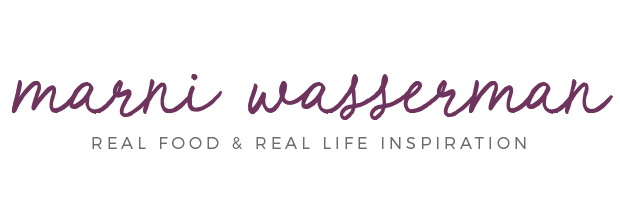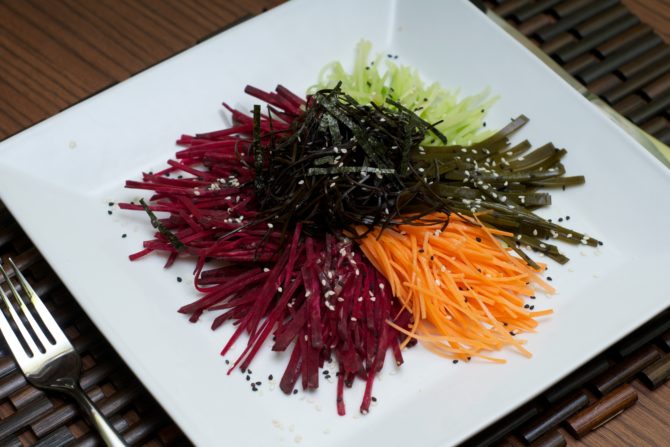March is calcium month and there is no better time to clarify the myths of calcium and bone strength! Despite what dairy companies lead you to believe, building strong bones is a lot more complicated than consuming calcium. There are three misconceptions when it comes to dairy, calcium and bones.
1. Building strong, healthy bones depends only on calcium
2. Your calcium intake is the only thing that matters
3. Dairy is the only good source of calcium
Let’s clarify these myths one at a time:
Clarification #1 – Calcium + Vitamins Build Strong Bones
Bone development is influenced by a number of factors, including nutrition, exposure to sunlight, hormones, and physical exercise. There’s no denying that calcium is important for bone health but bones need more than just calcium to grow and stay strong. Other important sources include Vitamin C, Vitamin D, and Vitamin K.
Enjoy these foods that are bursting with calcium!
- Green Leafy Veggies – kale, chard, beet tops, collards, broccoli, Brussels sprouts, dandelion, mustard greens and bok choy.
- Root Veggies – parsnip, rutabaga, sweet potatoes, squash, okra.
- Nuts and Seeds – almonds, pine nuts, hemp seeds, sesame seeds.
- Beans, Legumes and Whole grains – kidney beans, black beans, quinoa and amaranth.
- Fermented and Organic Soy – Tofu, tempeh, miso and edamame.
- Sea vegetables include arame, nori, dulse, wakame and kombu. They can be found at your local health food store or in the condiment section of your grocery store. Another great place to look is at authentic Asian markets.
- Other: carob, tahini, almond butter, cocoa, goji berries, figs and molasses.
Clarification #2 – Importance of Calcium Absorption & Retention
As we just discussed, calcium-rich foods is one source that helps build strong bones. But what you may not realize is that calcium is for more than just your bones – almost every function in our body requires calcium. Many degenerative diseases such as osteoporosis among others are a result of poor quality supplementation and an imbalanced diet. Reaping the benefits of calcium is also about how much we’re able to absorb, and retain. Factors including our dietary habits, lifestyle, and aging process all contribute to calcium absorption and retention.
- Stress impacts normal digestion and can have a negative effect on calcium absorption.
- Age also impacts calcium absorption – on average, adults absorb approximately 20% less calcium than children.
- Protein increases calcium absorption and stimulates the production of hormones that promotes new bone formation.
Clarification #3 – Avoid Dairy as a Source of Calcium
People have grown to accept that you can only get your daily intake of calcium from conventional dairy and a calcium supplement. What you need to also focus on is whole food sources that are naturally loaded with calcium. These foods don’t contain dairy, but will provide your body with the calcium it requires to function in an easy-to-assimilate way along with a whole bunch of other minerals and nutrients that are vital to good health!
Learn more about Calcium on these amazing podcast episodes!
Try this calcium-rich treat — Carob Fig Frozen Fudge
Ingredients
1 cup figs, soaked
1 1/2 cups filtered water
1 tablespoon pure vanilla
1/2-1 cup nut butter (almond or sunflower)
1/2-1 cup raw carob powder
1/2 cup Manitoba Harvest hemp seeds
Instructions
1. Place the figs in a bowl and cover with water and soak for about an hour, until soft. Drain reserving liquid.
2. In a blender, blend the figs, and vanilla until smooth, slowly adding soaking water as needed to form a creamy consistency.
3. Transfer the fig mixture into a large bowl, add the nut butter, and stir to combine.
4. In a separate bowl, mix the carob and hemp seeds.
5. Gradually add the dry carob mixture into the wet fig mixture. Stir well. Press evenly into a 10 by 18 inch brownie pan, 1 inch thick and freeze until firm (about 3 hours).
6. To serve, cut into 1 inch squares.
Happy calcium-eating!



